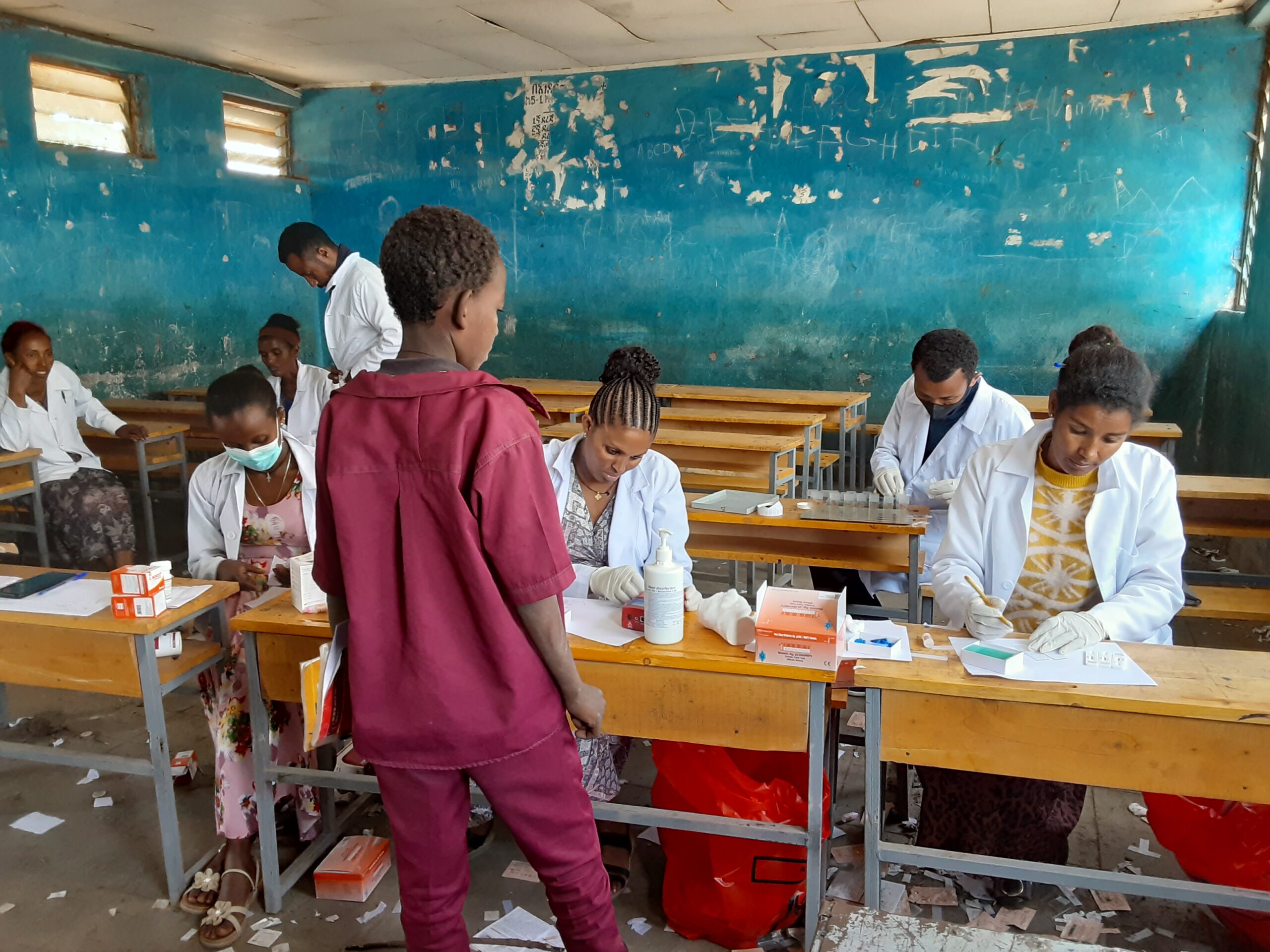
College of Public Health Department of Epidemiology Assistant Professor, Abraham Mengist, PhD, is continuing data collection in Ethiopia as part of a two-year malaria project. The project is a collaboration with researchers from Addis Ababa University and is investigating the impact of repeated anthelminthic treatment on the Epidemiology and clinical outcomes of malaria, anemia, undernutrition, and academic performance of children. Speaking of the project, Dr. Mengist said, “we are conducting a randomized trial among school-age children in Ethiopia, where some are treated with Albendazole (400mg)… Continue Reading



